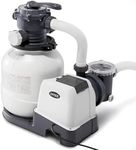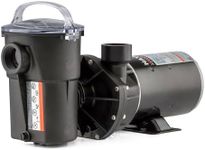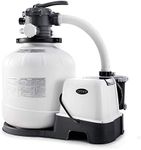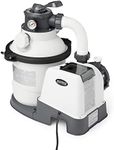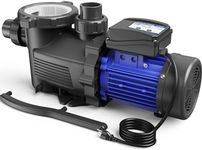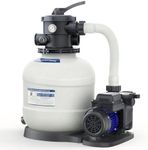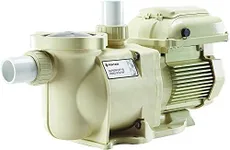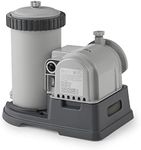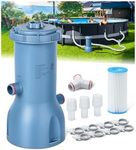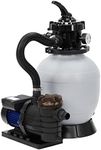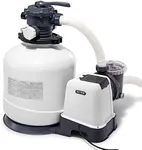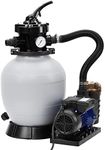Buying Guide for the Best Pool Pumps For Above Ground Pools
Choosing the right pool pump for your above-ground pool is crucial for maintaining clean and clear water. A pool pump circulates the water, ensuring that it passes through the filter to remove debris and contaminants. When selecting a pool pump, you need to consider several key specifications to ensure it meets your pool's needs and operates efficiently. Understanding these specifications will help you make an informed decision and keep your pool in top condition.Pump Flow RateThe pump flow rate, measured in gallons per minute (GPM) or gallons per hour (GPH), indicates how much water the pump can move in a given time. This spec is important because it determines how quickly your pool water is circulated and filtered. For small pools, a lower flow rate (30-50 GPM) may be sufficient, while larger pools may require a higher flow rate (50-100 GPM). To pick the right flow rate, consider the size of your pool and how often you want the water to be completely circulated. A good rule of thumb is to choose a pump that can circulate all the water in your pool within 8 hours.
Horsepower (HP)Horsepower measures the power output of the pump's motor. This spec is important because it affects the pump's ability to move water efficiently. Pumps typically range from 0.5 HP to 2 HP. For smaller above-ground pools, a pump with 0.5 to 1 HP is usually sufficient. Larger pools or those with additional features like waterfalls or spas may require a pump with 1.5 to 2 HP. To pick the right horsepower, consider the size of your pool and any additional water features that may require more power.
Energy EfficiencyEnergy efficiency refers to how much electricity the pump uses to operate. This spec is important because it impacts your energy bills and the environmental footprint of your pool. Energy-efficient pumps often have variable speed settings, allowing you to adjust the flow rate and power consumption. Single-speed pumps are less efficient but cheaper upfront, while variable-speed pumps are more efficient but cost more initially. To pick the right energy efficiency, consider how often you will run the pump and your willingness to invest in long-term energy savings.
Noise LevelThe noise level of a pool pump, usually measured in decibels (dB), indicates how loud the pump will be when operating. This spec is important if your pool is located near living areas or if you prefer a quieter environment. Pumps with lower noise levels (below 60 dB) are generally quieter and more pleasant to be around. To pick the right noise level, consider the placement of your pool and your tolerance for noise. If noise is a concern, look for pumps specifically designed to operate quietly.
Durability and Build QualityDurability and build quality refer to the materials and construction of the pump. This spec is important because it affects the pump's lifespan and maintenance needs. Pumps made with high-quality materials like stainless steel and durable plastics are more resistant to corrosion and wear. To pick the right durability, consider the environmental conditions your pump will face, such as exposure to sunlight, chemicals, and weather. Investing in a well-built pump can save you money on repairs and replacements in the long run.
Ease of Installation and MaintenanceEase of installation and maintenance refers to how simple it is to set up and care for the pump. This spec is important because it affects the time and effort required to keep your pump running smoothly. Some pumps come with user-friendly features like clear instructions, quick-connect fittings, and easy-access components. To pick the right ease of installation and maintenance, consider your comfort level with DIY projects and the availability of professional help if needed. Choosing a pump that is easy to install and maintain can save you time and hassle.
